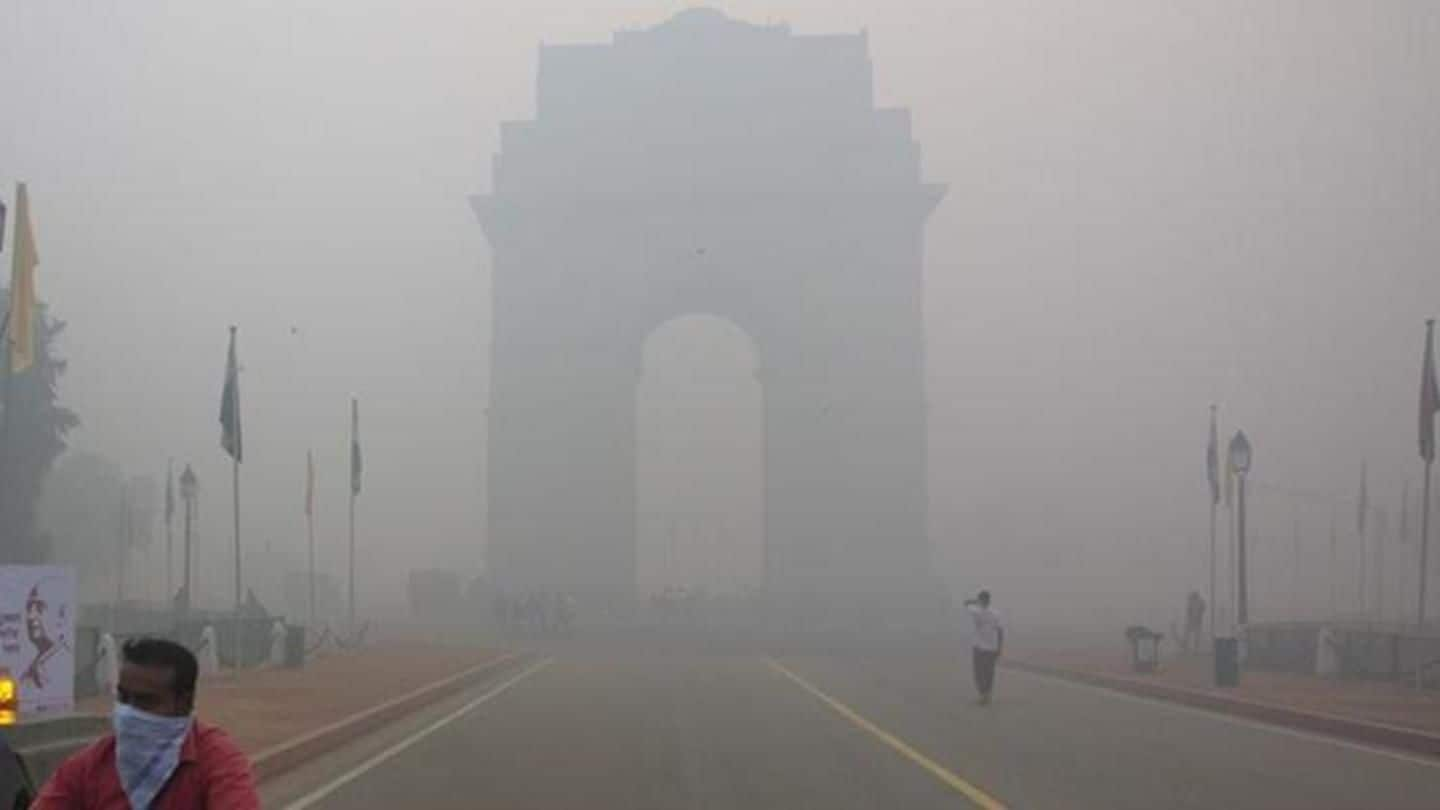
The world's fastest growing economy is choking on toxic air
What's the story
India might be the world's fastest growing economy, but it is fighting an increasingly uphill battle against air pollution. While China has had a long reputation for smoggy skies and choked lungs, Beijing has been much more adept at taking coordinated action to tackle the problem. India, on the other hand, has had a scattered, half-hearted approach, and that doesn't bode well. Here's more.
China
China's air pollution control policies are showing positive results
Up until recently, many of China's cities, especially its capital, Beijing, had been associated with extreme levels of air pollution. However, over the past few years, China's coordinated national-level plans to tackle air pollution have started to show positive signs. While Chinese cities still see smoggy days, the number of days when air pollution reaches hazardous levels is on the decline.
Data
Beijing's air pollution levels are a sign of China's success
For instance, in 2015, Beijing experienced 43 days of severe, hazardous air pollution, when PM2.5 concentration in the air passed the 200 mark. Since then, China's policies to curb air pollution has yielded positive results, with the number of hazardous days in Beijing falling to 20 in 2017.
Chinese policy
China created incentives to fight air pollution
China's relative success in curbing air pollution is the result of both government policies and an aware citizenry. When Premier Li Keqiang declared a national war on pollution, the Chinese central government informed local officials that they would get no promotions till air pollution reduction targets were met, thereby creating political and bureaucratic incentives. Additionally, strict enforcement of government policies also forced millions of homes and businesses to switch to clean energy.
India
Meanwhile, India has the world's 10 most polluted cities
In India, which is home to the world's 10 most polluted cities, the trend is exactly the reverse. The number of days when air pollution reaches hazardous levels is on the rise, especially in the dusty north Indian states. Although the Modi government has taken cognizance of the problem, it's unlikely that half-hearted government policies will override pollution resultant of India's rapid economic growth.
Data
While Beijing is cleaning its air, New Delhi is choking
In contrast to Beijing, the number of days when air quality reaches a hazardous level is increasing in New Delhi. In 2015, New Delhi experienced 66 such days, and the number subsequently rose to 84 in 2017.
Growth
India's economic growth is accompanied by rising air pollution
Indeed, India's GDP growth figures are beyond impressive. However, this same economic growth is accompanied by a proliferation of construction sites and polluting industries, millions of new cars, and growing emissions. With India still trying to promote basic manufacturing, it's unlikely that the situation will improve any time soon. Additionally, India's economic problems also make coordinated political action difficult.
Political challenge
Why coordinated political action against air pollution is difficult
India is not only the world's largest democracy, but possibly the world's most chaotic democracy too. With over 1.3 billion people, a significant percentage of whom languish in poverty or are unemployed, India's political priorities understandably involve pursuing very high economic growth. Thus, for political parties, taking a stand on reducing pollution at the cost of growth is a very daunting proposition indeed.
The cost
Growth, but at what cost?
That said, it seems like the Indian government is in denial about the debilitating effects of air pollution on its citizens. Data shows that air pollution-related ailments and related mortality are on the rise, and over 1.1 million people died of the same in 2015. There's also a massive economic cost to this - by World Bank calculations, productivity losses resultant of air pollution cost India a whopping 8.5% of its GDP every year.
Policy
India has yet to launch a national clean air plan
Yet, the government has, time and again, questioned the veracity of international studies linking India's air pollution to mortality. Of late, citing its own calculations, the Indian environment ministry has also started claiming that government policies have resulted in a reduction in air pollution in the national capital. However, the government has yet to launch an official national clean air plan with concrete targets.
Awareness
The problem of air pollution is under-recognized in India
The policy aspect apart, an additional problem burdening India is the lack of public awareness. While millions of Indians are suffering from the ill effects of air pollution, the general lack of education in India means that very few are linking these effects to the problem of air pollution. The result? There's no particular pressure from the citizenry to force the government to act.